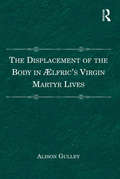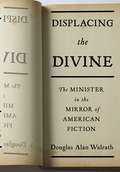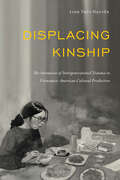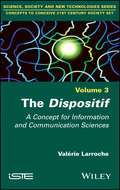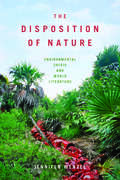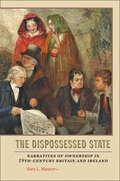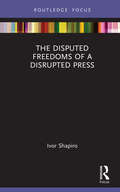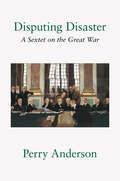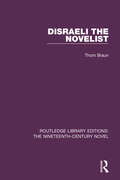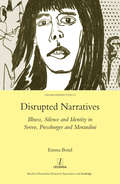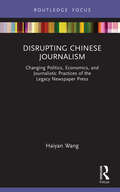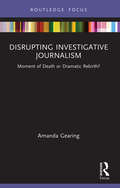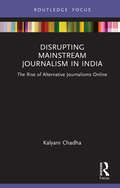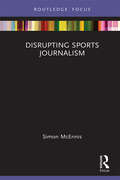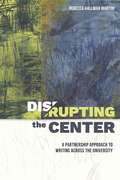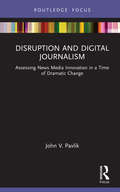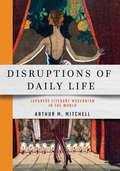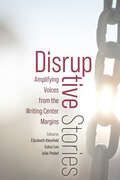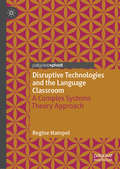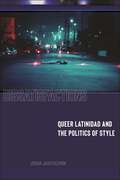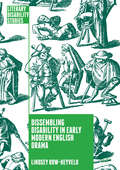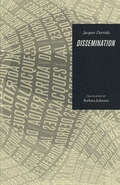- Table View
- List View
The Displacement of the Body in Ælfric's Virgin Martyr Lives
by Alison GulleyThe Displacement of the Body in Ælfric's Virgin Martyr Lives addresses 10th-century Old English hagiographical translations, from Latin source material, by the abbot and grammarian Ælfric. The vitae of Agnes, Agatha, Lucy, and Eugenia, and the married saints Daria, Basilissa, and Cecilia, included in Ælfric's s Old English Lives of Saints, recount the lives, persecution, and martyrdom of young women who renounce sex and, in the first four stories, marriage, to devote their lives to Christian service. They purport to be about the primacy of virginity and the role of the body in attaining sanctity. However, a comparison of the Latin sources with Ælfric's versions suggests that his translation style, characterized by simplifying the most important meanings of the text, omits certain words or entire episodes that foreground suppressed female sexuality as key to sainthood. The Old English Lives de-emphasize the physical nature of faith and highlight the importance of spiritual purity. In this volume, Alison Gulley explores how the context of the Benedictine Reform in late Anglo-Saxon England and Ælfric's commitment to writing for a lay audience resulted in a set of stories depicting a spirituality distinct from physical intactness.
Displacing The Divine: The Minister in the Mirror of American Fiction
by Douglas Alan WalrathAs religious leaders, ministers are often assumed to embody the faith of the institution they represent. As cultural symbols, they reflect subtle changes in society and belief-specifically people's perception of God and the evolving role of the church. For more than forty years, Douglas Alan Walrath has tracked changing patterns of belief and church participation in American society, and his research has revealed a particularly fascinating trend: portrayals of ministers in American fiction mirror changing perceptions of the Protestant church and a Protestant God. From the novels of Harriet Beecher Stowe, who portrays ministers as faithful Calvinists, to the works of Herman Melville, who challenges Calvinism to its very core, Walrath considers a variety of fictional ministers, including Garrison Keillor's Lake Woebegon Lutherans and Gail Godwin's women clergy. He identifies a range of types: religious misfits, harsh Puritans, incorrigible scoundrels, secular businessmen, perpetrators of oppression, victims of belief, prudent believers, phony preachers, reactionaries, and social activists. He concludes with the modern legacy of nineteenth- and early-twentieth-century images of ministers, which highlights the ongoing challenges that skepticism, secularization, and science have brought to today's religious leaders and fictional counterparts. Displacing the Divine offers a novel encounter with social change, giving the reader access, through the intimacy and humanity of literature, to the evolving character of an American tradition.
Displacing Kinship: The Intimacies of Intergenerational Trauma in Vietnamese American Cultural Production (Asian American History & Cultu)
by Linh Thuy NguyenNearly fifty years after the end of the war in Vietnam, American children of Vietnamese refugees continue to process the meanings of the war and its consequences through creative work. Displacing Kinship examines how Vietnamese American cultural productions register lived experiences of racism in their depictions of family life and marginalization. Second-generation texts illustrate how the children of refugees from Vietnam are haunted by trauma and a violent, ever-present, but mostly unarticulated past. Linh Thủy Nguyễn's analysis reveals that present experiences of economic insecurity and racism also shape these narratives of familial loss. Developing a theory of intergenerational trauma, Nguyễn rethinks how U.S. imperialism, the discourse of communism, and assimilation impacted families across generations. Through ethnic studies and feminist and queer-of-color critique, Displacing Kinship offers a critical approach for reading family tensions and interpersonal conflict as affective investments informed by the material, structural conditions of white supremacy and racial capitalism.
Displacing the Divine: The Minister in the Mirror of American Fiction (Religion and American Culture)
by Douglas WalrathAs religious leaders, ministers are often assumed to embody the faith of the institution they represent. As cultural symbols, they reflect subtle changes in society and belief-specifically people's perception of God and the evolving role of the church. For more than forty years, Douglas Alan Walrath has tracked changing patterns of belief and church participation in American society, and his research has revealed a particularly fascinating trend: portrayals of ministers in American fiction mirror changing perceptions of the Protestant church and a Protestant God.From the novels of Harriet Beecher Stowe, who portrays ministers as faithful Calvinists, to the works of Herman Melville, who challenges Calvinism to its very core, Walrath considers a variety of fictional ministers, including Garrison Keillor's Lake Woebegon Lutherans and Gail Godwin's women clergy. He identifies a range of types: religious misfits, harsh Puritans, incorrigible scoundrels, secular businessmen, perpetrators of oppression, victims of belief, prudent believers, phony preachers, reactionaries, and social activists. He concludes with the modern legacy of nineteenth- and early-twentieth-century images of ministers, which highlights the ongoing challenges that skepticism, secularization, and science have brought to today's religious leaders and fictional counterparts. Displacing the Divine offers a novel encounter with social change, giving the reader access, through the intimacy and humanity of literature, to the evolving character of an American tradition.
Displaying Women: Spectacles of Leisure in Edith Wharton's New York
by Maureen E. MontgomeryFrom the book: "The subject of this book is the public world of New York society women. It covers various aspects of women's lives at the turn of the century in terms of how they negotiated the larger transformation of American culture and society, as well as in terms of the intersection of class and gender interests. In particular, it explores how women's appearance and activities signified leisure with the express intention of laying claim to high social status, and how these women were, in turn, represented in the dominant discourses of journalism and etiquette. This study therefore seeks to make explicit the diverse meanings ascribed to New York society women's activities at the turn of the century in shaping and defining an upper-class identity. Leisure is the key to this upper- class identity precisely because it was an important marker of class."
The Dispositif: A Concept for Information and Communication Sciences
by Valerie LarrocheThe notion of the dispositif (dispositive) is particularly relevant for understanding phenomena where one can observe the reproducibility of distributed technical activities, operational or discursive, between human and non-human actors. This book reviews the concept of the dispositive through various disciplinary perspectives, analyzing in turn its technical, organizational and discursive dimensions. The relations of power and visibility enrich these discussions. Regarding information and communication sciences, three main uses of this concept are presented, on the one hand to illustrate the heuristic scope of issues integrating the dispositive and, on the other hand, to demonstrate its unifying aspect in this disciplinary field. The first use concerns the complexity of media content production; the second relates to activity traces using the concept of the “secondary information dispositive”; finally, the third involves the use of the dispositive in contexts of digital participation.
The Disposition of Nature: Environmental Crisis and World Literature
by Jennifer WenzelFinalist, 2022 Ecocriticism Book Prize, Association for the Study of Literature and the EnvironmentShortlisted, 2020 Book Prize, Association for the Study of the Arts of the PresentHow do literature and other cultural forms shape how we imagine the planet, for better or worse? In this rich, original, and long awaited book, Jennifer Wenzel tackles the formal innovations, rhetorical appeals, and sociological imbrications of world literature that might help us confront unevenly distributed environmental crises, including global warming.The Disposition of Nature argues that assumptions about what nature is are at stake in conflicts over how it is inhabited or used. Both environmental discourse and world literature scholarship tend to confuse parts and wholes. Working with writing and film from Africa, South Asia, and beyond, Wenzel takes a contrapuntal approach to sites and subjects dispersed across space and time. Reading for the planet, Wenzel shows, means reading from near to there: across experiential divides, between specific sites, at more than one scale.Impressive in its disciplinary breadth, Wenzel’s book fuses insights from political ecology, geography, anthropology, history, and law, while drawing on active debates between postcolonial theory and world literature, as well as scholarship on the Anthropocene and the material turn. In doing so, the book shows the importance of the literary to environmental thought and practice, elaborating how a supple understanding of cultural imagination and narrative logics can foster more robust accounts of global inequality and energize movements for justice and livable futures.
The Dispossessed State: Narratives of Ownership in Nineteenth-Century Britain and Ireland
by Sara L. MaurerDo indigenous peoples have an unassailable right to the land they have worked and lived on, or are those rights conferred and protected only when a powerful political authority exists? In the tradition of John Locke and Thomas Hobbes, who vigorously debated the thorny concept of property rights, Sara L. Maurer here looks at the question as it applied to British ideas about Irish nationalism in the nineteenth century. This book connects the Victorian novel’s preoccupation with the landed estate to nineteenth-century debates about property, specifically as it played out in the English occupation of Ireland. Victorian writers were interested in the question of whether the Irish had rights to their land that could neither be bestowed nor taken away by England. In analyzing how these ideas were represented through a century of British and Irish fiction, journalism, and political theory, Maurer recovers the broad influence of Irish culture on the rest of the British Isles.By focusing on the ownership of land, The Dispossessed State challenges current scholarly tendencies to talk about Victorian property solely as a commodity. Maurer brings together canonical British novelists—Maria Edgeworth, Anthony Trollope, George Moore, and George Meredith—with the writings of major British political theorists—John Stuart Mill, Henry Sumner Maine, and William Gladstone—to illustrate Ireland’s central role in the literary imagination of Britain in the nineteenth century.The book addresses three key questions in Victorian studies—property, the state, and national identity—and will interest scholars of the period as well as those in Irish studies, postcolonial theory, and gender studies.
The Disputed Freedoms of a Disrupted Press (Disruptions)
by Ivor ShapiroThe Disputed Freedoms of a Disrupted Press explores the origins, connections, and contradictions evident amongst divergent understandings of press freedom around the world. Drawing on examples from various countries and cultures, this book distinguishes the universal right of free expression from the more complex and innately conditional liberties claimed by news media. It examines journalists’ common goals and norms in light of polarized and disordered information channels, reckonings with identity and privilege, diminished public trust, and altered revenue streams. The author discusses emerging forms of accurate, contextualized news production and argues that journalistic autonomy can be sustained only through demonstrated accountability for providing factual information about public affairs according to self-regulated professional standards. The book concludes by proposing a principle-based framework for enhancing the case for press protections and opposing disinformation while minimizing harm. Adopting this approach would require many publishers and editors to consider paradigm shifts and structural changes. This is a timely contribution to the body of literature on press freedom and will be a valued resource for advanced students and researchers seeking a contemporary understanding of journalistic practice and the evolving foundations of media law.
Disputing Disaster: A Sextet on the Great War
by Perry AndersonA group portrait of six of the finest historians of the First World WarIn Disputing Disaster, Perry Anderson picks out from the highly charged historiography on the First World War one leading historian from each of the major powers that survived the conflagration: Fritz Fischer, famous historian of German war guilt; Pierre Renouvin, a disabled serviceman and preeminent authority on the conflict in France; Luigi Albertini, the Italian newspaper tycoon who, unique among scholars of the Great War, played a part in pitching his country into it; Paul W. Schroeder, the American expert on the system of Europe - an interstate relations and its breakdown in 1914; Keith Wilson, the one radical deviant from a patriotic consensus about Britain&’s role in the outbreak of the fighting; and, from Australia (summoned into the war as a dominion), Christopher Clark, acclaimed author of The Sleepwalkers.Disputing Disaster offers a compelling analysis of the major competing versions of the genesis of the Great War; fresh light on the political background of its leading historians; and a novel synthesis of the determining pressures that brought the conflict to pass.Perry Anderson is emeritus in History at UCLA, and an editor at New Left Review. Recent work: Different Speeds, Same Furies, a comparative study of Anthony Powell and Marcel Proust.
Disraeli
by Robert P. O'KellWhen we think of Benjamin Disraeli (1804-81), one of two images inevitably first springs to mind: either Disraeli the two-time prime minister of Britain, or Disraeli the author of major novels such as Coningsby, Sybil, and Endymion. But were these two sides of his persona entirely separate? After all, the recurring fantasy structures in Disraeli's fictions bear a striking similarity to the imaginative ways in which he shaped his political career.Disraeli: The Romance of Politics provides a remarkable biographical portrait of Disraeli as both a statesman and a storyteller. Drawing extensively on Disraeli's published letters and speeches, as well as on archival sources in the United Kingdom, Robert O'Kell illuminates the intimate, symbiotic relationship between his fiction and his politics. His investigation shines new light on all of Disraeli's novels, his two governments, his imperialism, and his handling of the Irish Church Disestablishment Crisis of 1868 and the Eastern Question in the 1870s.
Disraeli the Novelist (Routledge Library Editions: The Nineteenth-Century Novel #3)
by Thom BraunFirst published in 1981, this book attempts to approach a better understanding of Disraeli the man through his life as a novelist. It is not a series of literary criticisms, rather an attempt to see how ‘fiction’ and the act of ‘fictionalising’ played an important part in Disraeli’s life. The author discusses how Disraeli’s novels in terms of how they reflected various stages of his life and development while assuming no knowledge of the, now mostly out-of-print, books on the part of the reader. This book fills the gap between the standard and comprehensive political biographies and the few literary analyses that appeared the twenty years prior to its publication.
Disrupted Narratives: Illness, Silence and Identity in Svevo, Pressburger and Morandini
by Emma BondIf Madame Bovary's death in Flaubert's 1857 novel marked the definitive end of the Romantic vision of literary disease, then the advent of psychoanalysis less than half a century later heralded an entirely new set of implications for literature dealing with illness. The theorization of a potential unconscious double (capable of expressing the body, and thus also the intimate damage caused by disease) in turn suggested a capacity to subvert or destabilize the text, exposing the main thread of the narrative to be unreliable or self-conscious. Indeed, the authors examined in this study (Italo Svevo (1861-1928), Giorgio Pressburger (1937-) and Giuliana Morandini (1938-)) all make use of individual 'infected' or suppressed voices within their texts which unfold through illness to cast doubt on a more (conventionally) dominant narrative standpoint. Applying the theories of Freud and more recent writings by Julia Kristeva, Bond offers a new critical reading of the literary function of illness, a function related to the very nature of narration itself.
Disrupting Chinese Journalism: Changing Politics, Economics, and Journalistic Practices of the Legacy Newspaper Press (Disruptions)
by Haiyan WangDisrupting Chinese Journalism provides a rich insight into the disruptive effects of digital technologies – especially smart-phones – on the Chinese print media market. Pulling from an extensive corpus of original research, including 191 face-to-face interviews with managers and journalists, and a content analysis of some 4,000 news reports, Haiyan Wang examines how Chinese legacy newspapers have responded to the changing digital media environment, including by adapting their organizational structures, revenue models, and journalistic practices. This book also points to how the government has taken a more interventionist stance on editorial content, and how this has further complicated the digital transitions of the Chinese media. This book is an invaluable resource for students of media studies, journalism, Chinese area studies, and digital technology.
Disrupting Investigative Journalism: Moment of Death or Dramatic Rebirth? (Disruptions)
by Amanda GearingThis book makes the case for the enormous potential embodied in investigative journalism if reporters collaborate in the digital sphere and engage with emerging techniques and technologies. Bringing together personal narratives from investigative journalists who have successfully found, verified and published stories using social media platforms and Web based communications, Disrupting Investigative Journalism explores the risks and benefits that come from this kind of digital collaboration. Citing how digital connection has enabled reporters around the world to form the International Consortium of Investigative Journalists, which in turn led to such global news sensations as the Panama Papers and the Paradise Papers, this book makes a practical argument for how the daily work of investigative journalism can change to capture enormous latent potential. This is a valuable text for students and scholars in the fields of investigative journalism, media and digital communication.
Disrupting Mainstream Journalism in India: The Rise of Alternative Journalisms Online (ISSN)
by Kalyani ChadhaDisrupting Mainstream Journalism in India offers a comprehensive and empirically-grounded analysis of the production of digital journalism by marginalized groups within Indian society.Drawing on in-depth interviews with practitioners as well as samples of news content, the author critically examines the way in which varied forms of digital alternative journalism provide socially, economically and politically disadvantaged groups with new and unprecedented opportunities to express their own perspectives, as well as offering alternatives to the hegemony of mainstream news narratives. These marginalized groups include women, Dalits and Muslims whose voices tend to be erased or misrepresented within the public sphere. By exploring these disruptions, Chadha offers insight into not only into the new media landscape of India but also its implications for journalism and democracy at large.Disrupting Mainstream Journalism in India is a valuable empirical resource for students and scholars interested in Indian media, journalism and democracy.
Disrupting Sports Journalism (Disruptions)
by Simon McEnnisThis book critically explores the impact that digital technology has had on the practices and norms of sports journalism. In the wake of major digital disruptions in news reporting, the author analyses how sports journalism has been particularly vulnerable to challenges and attacks on its expertise because of its historically weak commitment to professionalism. Ultimately, an argument is built that sports journalism’s professional distinctiveness will depend on its capacity to produce rigorous news work at a time when its core, routinised practices are being displaced by bloggers and team media. Recent developments such as The Athletic, a start-up that has built its business model around quality sports storytelling, and the impact of the COVID-19 pandemic offer hope that a paradigm shift in digital sports journalism culture towards serious reporting is starting to emerge. The question for both the industry and scholars going forward is whether these changes will crystallise and take hold in the long term. Disrupting Sports Journalism is a valuable text for researchers and students in sports media and journalism studies, as well as for industry professionals seeking an insight into developments in the field.
Disrupting the Center: A Partnership Approach to Writing Across the University
by Rebecca Hallman MartiniStrategic partnership offers writing centers a framework for responding to disruptive innovations in higher education. Through partnership, writing centers can simultaneously secure resources and support the practice of tutoring writing in ways that enable moments of resistance, where writing consultants and students can tactically challenge the corporate university through their methods of practice. Disrupting the Center explicates, analyzes, and critiques one particular writing center’s partnership approach to collaboration with disciplinary faculty and upper administrators across the curriculum. Using on-site research and critical ethnographic study from one university writing center, Rebecca Hallman Martini establishes an innovative, cross-disciplinary partnership approach to writing instruction in which peer tutoring plays an integral curricular role. Case studies detail three partnerships that respond directly to existing or potential disruptive innovations in higher education and showcase important concepts: mapping mutual benefit and stakeholder engagement in an online studio/hybrid first-year writing program partnership in response to online education, creating negotiated space to work through ethical issues involved when working with a public-private partnership to develop a required extracurricular portfolio project in a business school, and building transformational partnerships through establishing a writing-in-the-professions curriculum in the College of Engineering in response to career readiness initiatives. Disrupting the Center uses interviews, observations, focus groups, analysis of consultations, meetings, and shared documents such as annual reports, budgets, assessment data, assignments, and syllabi to generate a wide view of how systems work. Writing centers are flexible university-wide service spaces where students go for one-on-one and group writing support that can become dynamic spaces for writing pedagogy by disrupting, revitalizing, and reinventing the epistemic foundations of current rhetoric and composition landscapes and traditional approaches to writing.
Disruption and Digital Journalism: Assessing News Media Innovation in a Time of Dramatic Change (Disruptions)
by John V. PavlikThis book offers a timely insight into how the news media have adapted to the digital transformation of public communication infrastructure. Providing a conceptual roadmap to understanding the disruptive, innovative impact of digital networked journalism in the 21st century, the author critically examines how and to what extent news media around the world have engaged in digital adaptation. Making use of data from news media content production and distribution both off- and online, as well as user and financial data from the U.S. and internationally, the book traces how the news media embraced and reacted to key developments such as the invention of the World Wide Web in 1989 and the launch of Google in 1998, Facebook in 2004, and the Apple iPhone in 2009. The author also highlights innovative organizations that have sought to reimagine news media that are optimized for digital, online, and mobile media of the 21st century, demonstrating how these groups have been able to stay better engaged with the public. Disruption and Digital Journalism is recommended reading for all academics and scholars with an interest in media, digital journalism studies, and technological innovation.
Disruptions of Daily Life: Japanese Literary Modernism in the World (Studies of the Weatherhead East Asian Institute, Columbia University)
by Arthur M. MitchellDisruptions of Daily Life explores the mass media landscape of early twentieth century in order to uncover the subversive societal impact of four major Japanese authors: Tanizaki Jun'ichirō, Yokomitsu Riichi, Kawabata Yasunari, and Hirabayashi Taiko. Arthur Mitchell examines this literature against global realities through a modernist lens, studying an alternative modernism that challenges the Western European model.Through broad surveys of discussions surrounding Japanese life in the 1920s, Mitchell locates and examines flourishing divergent ideologies of the early twentieth century such as gender, ethnicity, and nationalism. He unravels how the narrative and linguistic strategies of modernist texts interrogated the innocence of this language, disrupting their hold on people's imagined relationship to daily life. These modernist works often discursively displaced the authority of their own claims by inadvertently exposing the global epistemology of East vs. West. Mitchell's reading of these formalist texts expands modernism studies into a more translational dialogue by locating subversions within the local historical culture and allowing readers to make connections to the time and place in which the texts were written. In highlighting the unbreakable link between literature and society, Disruptions of Daily Life reaffirms the value of modernist fiction and its ability to make us aware of how realities are constructed—and how those realities can be changed.
Disruptive Stories: Amplifying Voices from the Writing Center Margins
by Elizabeth Kleinfeld Sohui Lee Julie PrebelDisruptive Stories uses an activist editing method to select and publish authors that have been marginalized in scholarly conversations and enrich the understanding of lived writing center experiences that have been underrepresented in writing center scholarship. These chapters explore how marginality affects writing centers, the people who work in them, and the scholarship generated from them by examining the consequences—both positive and negative—of marginalization through a mix of narratives and research. Contributors provide unique perspectives ranging across status, role, nationality, race, and ability. While US tenure-track writing center administrators (WCAs) do not make up the majority of those who hold WCA positions in writing centers, they are more likely to be the storytellers of the writing center grand narrative. They publish more, present more conference papers, edit more journals, and participate more in organizational leadership. This collection complicates that narrative by adding marginalized voices and experiences in three thematic categories: structural marginalization, globalization and marginalization, and embodied marginalization. Disruptive Stories spurs further conversations about ways to improve the review process in writing center scholarship so that it more accurately reflects the growing diversity of its administrators and practitioners.
Disruptive Technologies and the Language Classroom: A Complex Systems Theory Approach
by Regine HampelAlthough new technologies are embedded in students’ lives today, there is often an assumption that their use is transparent, inconsequential, or a distraction. This book combines complex systems theory with sociocultural theory and the multimodal theory of communication, providing an innovative theoretical framework to examine how communication and meaning-making in the language classroom have developed over time, how technology impacts on meaning-making, and what the implications are for learners, teachers, institutions and policy makers. Recent studies provide evidence for the disruptive effect of technology which has resulted in a phase shift that is reshaping language education by creating new interaction patterns, allowing for multimodal communication, and introducing real-world communication into the classroom. The book proposes ways of responding to this shift before concluding that the new technologies are radically transforming the way we learn. It is likely to appeal to a range of readers, including students, academics, teachers and policy-makers.
Dissatisfactions: Queer Latinidad and the Politics of Style (Minoritarian Aesthetics)
by Joshua Javier GuzmánHow the queer Chicano punks of post-1960s Los Angeles developed a unique politics of styleIn this groundbreaking work, Joshua Javier Guzmán explores the queer punk and Chicano/Latino avant-garde art scenes in post-1968 Los Angeles from the rise of Ronald Reagan to the height of the AIDS epidemic. He demonstrates how style–as a cultural form and sensibility–becomes essential to Latino politics at the moment the utopian impulses of the 1960s begin to fade.Guzmán uncovers how queer Latinos in Los Angeles used performance, underground media, experimental art, and literature to interrogate the limits of Chicano nationalism and the burgeoning politics of gay liberation. These subcultural forms give rise to a theory of what he calls “stylized discontent,” expressed as nausea, lo-fi, ambivalence, and malaise. Each chapter of the book is framed by a specific stylized discontent, demonstrating how they were repurposed by queer punk Latinos as responses to the AIDS crisis and the rise of neoliberalisms.Dissatisfactions highlights the middle ranges of political agency strategically utilized by queer racialized historical actors to underscore how negative feelings become instrumental to social change. Revealing new forms of activism and art that continue to structure the way we understand systemic violence and survival, Dissatisfactions insists on the significance of both the politics of style and the different styles politics may take.
Dissembling Disability in Early Modern English Drama (Literary Disability Studies)
by Lindsey Row-HeyveldWhy do able-bodied characters fake disability in 40 early modern English plays? This book uncovers a previously unexamined theatrical tradition and explores the way counterfeit disability captivated the Renaissance stage. Through detailed case studies of both lesser-known and canonical plays (by Shakespeare, Jonson, Marston, and others), Lindsey Row-Heyveld demonstrates why counterfeit disability proved so useful to early modern playwrights. Changing approaches to almsgiving in the English Reformation led to increasing concerns about feigned disability. The theater capitalized on those concerns, using the counterfeit-disability tradition to explore issues of charity, epistemology, and spectatorship. By illuminating this neglected tradition, this book fills an important gap in both disability history and literary studies, and explores how fears of counterfeit disability created a feedback loop of performance and suspicion. The result is the still-pervasive insistence that even genuinely disabled people must perform in order to, paradoxically, prove the authenticity of their impairments.
Dissemination
by Jacques DerridaInterpretations of Plato, Stéphane Mallarmé, and Philippe Sollers’ writings in three essays: “Plato’s Pharmacy,” “The Double Session,” and “Dissemination.”“The English version of Dissemination [is] an able translation by Barbara Johnson . . . Derrida’s central contention is that language is haunted by dispersal, absence, loss, the risk of unmeaning, a risk which is starkly embodied in all writing. The distinction between philosophy and literature therefore becomes of secondary importance. Philosophy vainly attempts to control the irrecoverable dissemination of its own meaning, it strives—against the grain of language—to offer a sober revelation of truth. Literature—on the other hand—flaunts its own meretriciousness, abandons itself to the Dionysiac play of language. In Dissemination—more than any previous work—Derrida joins in the revelry, weaving a complex pattern of puns, verbal echoes and allusions, intended to ‘deconstruct’ both the pretension of criticism to tell the truth about literature, and the pretension of philosophy to the literature of truth.” —Peter Dews, The New Statesman
